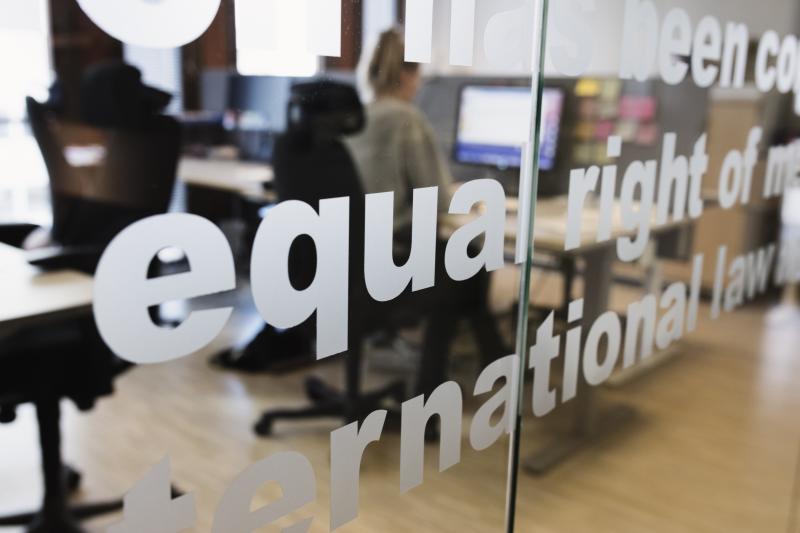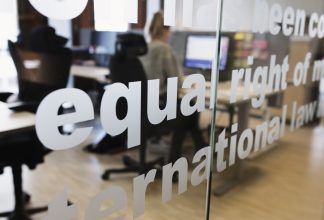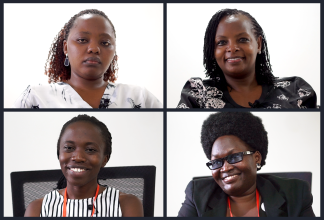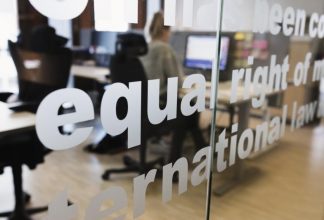Civil Rights Defenders seeking consultant to conduct mid-term evaluation

Civil Rights Defenders is looking for a consultant to conduct a mid-term evaluation of the project “Deter impunity and promote peace through accountability, capacity, and security: Supporting Human Rights Defenders in South Sudan“. Please read ‘Terms of Reference’ below.
General Information on evaluated project
Project Title: Deter impunity and promote peace through accountability, capacity, and security: Supporting Human Rights Defenders in South Sudan.
Project Duration: 1 October, 2020 – 31 December, 2023 (39 months).
Project Funder: The Swedish International Development Cooperation Agency (SIDA).
Partners: 9–10 local human rights organisations.
Background
Civil Rights Defenders is an international human rights organization that partners with and supports human rights defenders (HRDs) globally. It has extensive experience in supporting HRDs most at risk in several of the challenging country situations to create democratic society in which human rights are protected. Civil Rights Defenders, working through flexible, context sensitive and, when needed, fast interventions, operates to support local actors who are at the core of ensuring the respect of human rights. Civil Rights Defenders works in the Africa region with the same mission of partnering with local HRDs to support their work to guarantee the respect and protection of human rights.
Our work is based on international human rights law in the form of conventions, treaties, and customary international law. We work within the human rights framework and principles in which human rights should be guaranteed to all without discrimination. Civil Rights Defenders supports the most repressed HRDs in a concerted effort to hinder the global trend of democratic backsliding affecting our work and our partners’ ability to support the realisation of civil and political rights in the regions where we work.
The work of Civil Rights Defenders in South Sudan is guided by Civil Rights Defenders´ Strategy 2020-2022 which aims to expand space for HRDs by improving security and capacity of our partners, and by increasing awareness and accountability in relation to civil and political rights. Civil Rights Defenders’ strategy and programmes support the promotion of the rule of law, strengthening of democratic institutions and increasing access to justice and is in line with the UN Sustainable Development Goal (SDG) 16. Our work is based on the fundamental importance of civil society for human rights improvements and social sustainability.
In 2021, Civil Rights Defenders started the implementation of a three-year project (October 2020-December 2023) entitled “Deter impunity and promote peace through accountability, capacity, and security: Supporting Human Rights Defenders in South Sudan.” The project aims at supporting and strengthening civil society organisations and HRDs in South Sudan with the main objective to deter the pervasive impunity and to promote a peaceful and inclusive development. This is to be achieved by enhancing the ability of partner organisations and HRDs to promote and ensure accountability for human rights violations. The project supports human rights organisations with grants and capacity building activities through:
- Support to strengthen their financial and administrative capacity.
- Security interventions to enable HRDs to continue their work safely and build long term security structures.
- Support to local initiatives to fight impunity through documentation and legal work; and
- Support to advocacy and networks expansion for accountability purposes.
Description and Objective of the consultancy
The objective of the mid-term evaluation is to assess the quality of the implementation of the project “Deter impunity and promote peace through accountability, capacity, and security: Supporting Human Rights Defenders in South Sudan” implemented by the Civil Rights Defenders. It should cover the project’s intermediary results, sustainability, and propose follow up actions in order to preserve and/or improve the results. The evaluation will assess the project´s design, scope, implementation status and the capacity to achieve the expected outcomes.
The mid-term evaluation will cover 18 months (October 2020 to March 2022) of the project and will compile and analyse lessons learned, challenges faced, and best practices obtained during the implementation period which will inform the remaining implementation period. It will also provide information on the nature, extent and where possible, the potential impact and sustainability of the project.
Scope of the assignment
The mid-term evaluation is expected to cover the following issues:
- Relevance (design and focus of the project):
- How relevant is the project for promoting accountability for human rights violations and international crimes in South Sudan through legal means?
- How relevant is the project in strengthening HRDs and civil society organisations in South Sudan?
- To what extent are the stated outcomes and outputs on track?
- To what extent have the results so far contributed to Civil Rights Defenders´ Strategy 2020-2022?
- What factors have contributed to achieving or hindering achievement of the intended outputs and outcomes?
- Was the strategy adopted and inputs identified, realistic, appropriate and adequate for achievement of the results?
- Has the partnership strategy been appropriate and effective?
- Effectiveness (management processes and their appropriateness in supporting delivery):
- Is the project management model effective in monitoring and delivering planned results?
- Are the strategies and tools used in project implementation effective?
- Is the project effective in responding to the needs of the beneficiaries, and what results can we show?
- Efficiency of project implementation:
- Were the resources effectively utilized?
- What factors are contributing to implementation efficiency?
- Do the programme activities overlap and duplicate other similar interventions (funded nationally and /or by other donors)?
- Are there more efficient ways and means of delivering better results (outputs and outcomes) with the available inputs?
- How efficient are the management and accountability structures of the project?
- Gender Perspective
- How gender sensitive are the project designing and implementation for? How has gender equality been mainstreamed throughout the project?
- How well are women and other marginalised groups represented in different aspects of the project?
- Has the selection of partners and project activities contributed to the promotion and protection of women’s rights?
- What is the contribution of this project in enhancing the safety and capacity of women human rights defenders and women’s organisations?
- Sustainability
- To what extent are the results of the implemented project sustainable?
- What is the level of ownership among partnering local CSOs involved in this project? To what extent do involved CSOs influence the nature of the support they receive?
- How well has the project aligned with other human rights initiatives (national and regional) to ensure synergy and avoid duplication?
- What are the key factors that will require attention to improve prospects of sustainability of the project´s results and the potential for replication of the approach?
- What are the recommendations for the follow up to the project in order to preserve sustainability of the results?
- How did the programme adjust to the challenges faced and contextual changes? How well this served to avoid doing harm to local partners?
- Added value
- What kind of added value is created through the implementation of the project?
- What are the main reasons and factors that contribute to creating this added value?
- What is the added value of Civil Rights Defenders in supporting local human rights organisations in South Sudan?
Methodology
The overall methodological approach should be founded on the principles of participation, ownership, teamwork, and a learning approach. The assessment should include a mixed method methodology comprised of both qualitative and quantitative methods. This should include but not be limited to literature review of project documents, key informant interviews and survey among the partner organisations and HRDs.
Time schedule and reporting
The reporting will be consisted of:
- Inception Report that will include a detailed work plan, methodology description and tools to be used and proposed structure of the Final report, submitted 5 working days after the start of the assignment,
- Draft Final Report to be reviewed by Civil Rights Defenders, submitted 25 working days after the submission of the inception report, and
- Final report with included revisions is to be submitted no later than 10 working days after receiving Civil Rights Defenders revisions. The final report should not exceed 8 pages, excluding the annexes.
Application and selection criteria
Selection will fully be based upon the proposal submitted by the applicant. The technical proposal will be 70% and the financial proposal will have 30% weight for the overall score of the application
- Technical Proposal (70%):
- Applicant Qualification with CV and applicant’s profile (max. 1 page each)
- Technical understanding of the scope of the work, conceptual framing, proposed methodology
- Detailed timeline of activities and deliverables
- Financial proposal (30%)
- The best offer made and consideration of best value for money will be used in the financial evaluation.
We welcome proposals until 30 July 2022.
Qualified candidates and/or teams are invited to send their proposals to Mesfin Bekele mesfin.bekele@civilrightsdefenders.org and Ludivine Lecat ludivine.lecat@civilrightsdefenders.org.


